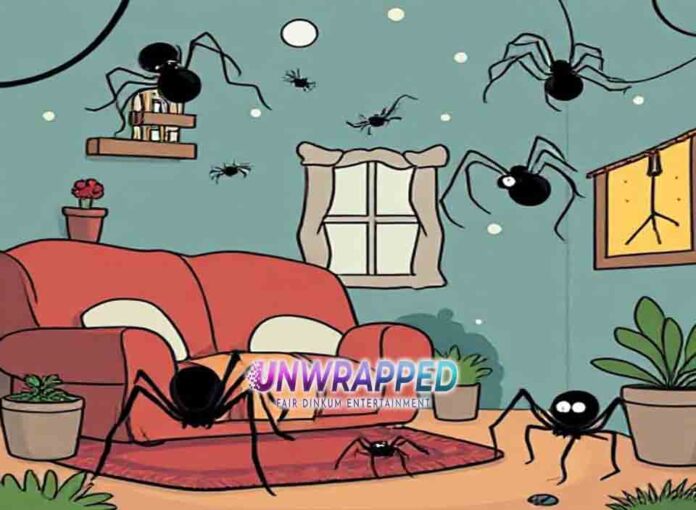For many, the sight of a spider lurking in a corner of the room sparks immediate unease. However, before you reach for a broom or call an exterminator, consider this: Are these eight-legged creatures simply freeloaders, or are they actually beneficial roommates? In this article, we’ll delve into the role spiders play in your home, their surprising benefits, and how to coexist with them (or not) in a way that’s safe and mutually beneficial.
The Truth About Spiders in Your Home
Contrary to popular belief, spiders don’t invade homes with malicious intent. They’re not there to terrorize you but to survive. Most spiders you encounter indoors are harmless and likely belong to species that thrive in human environments.
Why Spiders Are Attracted to Your Home
- Shelter: Homes provide stable temperatures and protection from predators.
- Food Supply: Spiders feast on insects such as flies, mosquitoes, and ants, which are abundant indoors.
- Web-Building Opportunities: Corners, ceilings, and window sills make perfect spots for web-building.
The Benefits of Spiders as Roommates
1. Natural Pest Control
Spiders are predators, feeding on a variety of common household pests:
- Flies
- Mosquitoes
- Gnats
- Moths
By keeping these insects in check, spiders act as a natural, chemical-free pest control solution.
2. Indicator of a Healthy Ecosystem
The presence of spiders often signifies a balanced indoor ecosystem. If spiders are present, it’s likely because there’s an ample food supply, indicating that your home supports biodiversity.
3. Contribution to Scientific Discovery
From their silk to their hunting techniques, spiders are fascinating creatures that contribute to scientific understanding. Even their behavior in domestic environments provides valuable insights.
Are Spiders Dangerous?
The Myth of the Aggressive Spider
Most house spiders are harmless and avoid humans. They bite only when provoked, and their venom is rarely dangerous to humans.
Common House Spiders
- Cellar Spiders (Daddy Longlegs): Known for their long legs and delicate webs, these spiders are harmless and excellent at controlling pest populations.
- Jumping Spiders: Recognizable by their compact bodies and large eyes, jumping spiders are curious but not aggressive.
- House Spiders: These small, brown spiders are non-aggressive and often mistaken for more dangerous species.
When to Be Concerned
Certain species, like the brown recluse or black widow, can pose risks. However, these spiders are rare in most homes and prefer secluded, undisturbed areas.
How to Coexist with Spiders
If you’re open to sharing your home with spiders, here are some tips to maintain harmony:
1. Leave Non-Harmful Spiders Alone
Spiders like cellar spiders and jumping spiders are harmless and beneficial. Allowing them to stay can help control other pests.
2. Relocate Unwanted Spiders
If you’re uncomfortable with spiders, capture them using a jar and gently release them outside. Avoid killing them unless absolutely necessary.
3. Keep Your Home Clean
Regular cleaning minimizes the presence of pests, which in turn reduces spider populations. Focus on:
- Vacuuming corners and crevices.
- Removing webs when unoccupied.
- Sealing cracks and gaps to prevent insect entry.Find effective tips for pest-proofing your home.
How to Minimize Spider Sightings
For those who prefer a spider-free home, here are strategies to deter them humanely:
1. Use Essential Oils
Spiders dislike strong scents like peppermint, eucalyptus, and tea tree oil. Mix a few drops with water and spray it in corners and crevices.
2. Declutter
Spiders love dark, quiet spaces. Regularly declutter storage areas, closets, and basements to reduce hiding spots.
3. Reduce Outdoor Attractants
Trim bushes and trees near windows, and keep outdoor lights off when not needed to minimize insect activity, which attracts spiders.
FAQs About Spiders in Your Home
Q: Why do spiders suddenly appear in my home?
A: Seasonal changes often drive spiders indoors in search of warmth, shelter, and food.
Q: Do all spiders spin webs?
A: No. Some species, like jumping spiders, actively hunt their prey rather than relying on webs.
Q: Should I be worried about spider bites?
A: Most spider bites are harmless and result from accidental contact. However, seek medical attention if you suspect a bite from a venomous species.
The Philosophy of Spider Coexistence
Sharing your home with spiders doesn’t have to be a nightmare. These tiny creatures contribute to the balance of your indoor ecosystem, silently working to keep pest populations in check. Instead of fearing them, consider the value they bring and how they reflect the interconnectedness of nature.
Conclusion: Are Spiders Really Your Roommates?
While spiders aren’t technically “trying” to be your roommates, they do play a significant role in maintaining a healthy home environment. Whether you choose to coexist or humanely relocate them, understanding their purpose and behavior can help you make informed decisions about their place in your home. The next time you spot a spider, take a moment to appreciate its quiet contribution—or kindly escort it to a new location.
See Also: The Correct Way to Fold a Fitted Sheet: A Philosophical Approach










